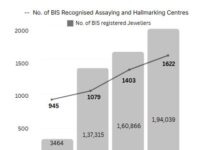Unified Metropolitan Transport Meeting Led by Sh. Banwarilal Purohit Charts Course for Chandigarh’s MRT Network Expansion
In a decisive move towards advancing urban mobility, the second meeting of the Unified Metropolitan Transport, presided over by Sh. Banwarilal Purohit, Administrator Chandigarh, unfolded significant developments. The Chair approved the Area-Based Comprehensive Mobility Plans (AAR) prepared by RITES, marking a pivotal step towards a comprehensive Mass Rapid Transit (MRT) network.
RITES, in its Comprehensive Mobility Plan (CMP), recommended a Mass Rapid Transit Network spanning approximately 154.5 Km in two phases for the Chandigarh Tri-City. During the inaugural meeting the CMP received approval, paving the way for the preparation of AAR and DPR for Phase I of the MRT network covering 79.5 Km.
Addressing the pressing matter of alignment options, RITES proposed a route for Phase I MRT network covering 91 Km. The approved alignment includes:
– Corridor 1: Sultanpur, New Chandigarh to Sector 28, Panchkula (34 Km)
– Corridor 2: Sukhna Lake to ISBT Zirakpur via ISBT Mohali & Chandigarh Airport (41.20 Km)
– Corridor 3: Grain Market Chowk (Sector 39) to Transport Light Chowk (Sector 26) (13.30 Km)
– Depot Entry: 2.50 Km
The Alignment Options Report and the confirmation of the MRT network expansion from 79.50 Km to 91.0 Km received approval from UMTA.
Crucially, the meeting also addressed the finalization of depot locations, with the subcommittee tasked to evaluate the feasibility in each state.
Furthermore, the deliberations extended to the critical decision of corridor types – elevated or underground. The UMTA finalized that proposals for both elevated and underground corridors would be submitted to the Ministry of Housing and Urban Affairs (Mohua), Government of India, along with their respective pros, cons, and financial implications.













